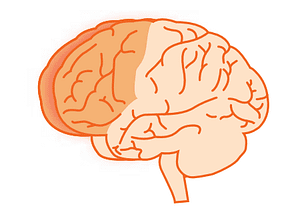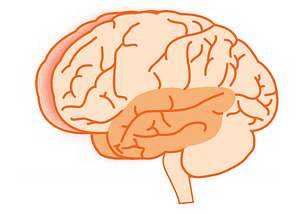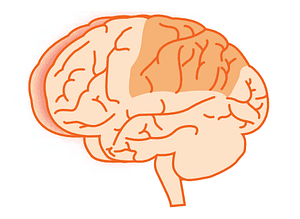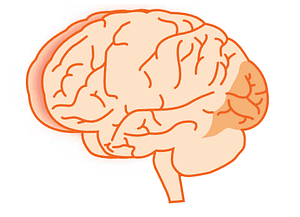
Every brain injury is different. The effects of a brain injury will vary from person to person. The kind of difficulties experienced also depend on which part of the brain is injured. This page will give you some idea of the possible consequences. Not everyone will experience all these effects.
The brain is so complex and is responsible for so many things that the effects of a brain injury can be far reaching and impact our abilities in so many ways, including effects on our body and senses, our communication abilities, our thinking skills, our emotions and behaviour.
We have broken down the possible effects by section.
Effects of a Brain Injury on the body and senses
| Fatigue | Many people experience extreme tiredness (fatigue) following a brain injury |
| Disturbed Sleep | A large proportion of people with a brain injury experience sleep difficulties. Disturbed sleep at night can also lead to drowsiness during the day |
| Headaches and/or Pain | Headaches and pain are quite common after a brain injury. They can vary in severity and frequency |
| Right or Left-sided Weakness | The right side of the brain controls the left side of the body, while the left side of the brain controls the right side of the body. Depending on which part of the brain is injured, the person may have a physical weakness mainly on one side of the body. This is a common problem for people after a stroke |
| Balance and Coordination | Difficulties with balance can make it more difficult to walk without help. The person affected may also have difficulties with coordinating their movements – particularly fine motor movements, such as tying shoelaces or buttoning a jacket |
| Sight, Visual Perception and Sensory Difficulties | Difficulties with sight and/or visual perception can include problems with seeing things far away, judging distances, reading maps, doing puzzles, and recognising things. Visual Perception is the mental process of recognising and understanding things we see. The senses of smell, taste or touch can also be affected. Some people may have difficulties with hearing; for example, experiencing ringing or buzzing noises (Tinnitus) or become very sensitive to noise. |
| Seizures | Seizures are common after a traumatic brain injury, but they can also occur following other types of brain injury. |
| Incontinence | A brain injury can affect a person’s ability to control their bowel or bladder. |
| Swallowing Difficulties | A difficulty with swallowing is called Dysphagia. Dysphagia is common after a stroke. It is caused by damage to the nerve cells that control the muscles used for chewing and swallowing. |
Seizures and Epilepsy
Cells in the brain communicate using electrical messages. When these electrical messages are suddenly disrupted, the person can have a seizure.
A seizure may cause a loss of consciousness, involuntary movements, a change in behaviour or a combination of all these. If someone has more than one seizure, they may be diagnosed as having Epilepsy.
Effects of a Brain Injury on Communication and Thinking skills
Communication
This is the sending and receiving of information between two or more people. After a brain injury, some people have trouble communicating. Common communication difficulties are:
- Dysarthria is a condition where the person affected may speak quickly, slowly, quietly or with a slur. After a brain injury, this can happen due to weakness in the muscles of the face, tongue, voice box and/or the muscles used for breathing.
- Aphasia is any impairment of language.
- Receptive Aphasia is when someone has difficulty understanding written language and what people are saying.
- Expressive Aphasia is when someone has difficulty talking and expressing ideas. They may also find writing difficult.
- Apraxia of Speech is when someone has difficulty coordinating the muscles they use to speak. The messages from the brain to the mouth are disrupted. The muscles are not weak, but the person cannot move them in the way needed to make the correct sounds.
Memory
It is very common to have difficulties with memory after a brain injury. These can include problems with remembering skills we had mastered, conversations, appointments, or even important events in our lives.
Attention and Concentration
It is also common to have difficulties with concentration after a brain injury (the words ‘concentration’ and ‘attention’ are interchangeable). The person affected may become easily distracted, have trouble keeping track of what is being said or done, experience information ‘overload’ or have difficulty doing more than one task at a time.
Information ‘Overload’
Many people have difficulty taking in, or processing, larger amounts of information following a brain injury. They may also be slower at processing the information. These difficulties can result in the person feeling overwhelmed, frustrated, or excluded. They may find it helpful to have information broken down into smaller points and to have extra time to respond.
Planning, Reasoning and Making Decisions
Executive Functions are a group of very important skills. We use these skills for things such as solving problems, planning, making decisions and controlling our behaviour. If the frontal lobes of the brain are injured, these skills can be affected.
Effects of a Brain Injury on Emotions and Behaviour
| Irritability and Anger | Some people may experience increased irritability and anger following their brain injury. There are several reasons for this: for example, damage to the frontal lobes or a reduced ability to cope with frustration. Some people find they become more easily overwhelmed in crowded or busy situations. Other causes of anger include the person misinterpreting why someone did or said something. Irritability and anger may result in the person affected doing things such as swearing, breaking things, or acting inappropriately. |
| Reduced Awareness (Reduced Insight and Lack of Insight) | Sometimes after a brain injury, a person may not be aware of their difficulties. This is often referred to as having ‘Reduced Insight’ or ‘Lack of Insight’. Changes in insight are often as a direct result of the brain injury. |
| Depression, Anxiety or Loss of confidence | Some people experience difficulties with their mood after a brain injury. There are a few reasons for this, including chemical and physical changes in the brain as a result of their injury. Changes in someone’s mood can also emerge as they begin to come to terms with the impact of their brain injury. This can lead to a loss of confidence, lowered self-esteem and sometimes depression. |
| Low Motivation (Apathy) | Difficulties with motivation are commonly seen after damage to the frontal lobes of the brain. The person affected may have a lack of motivation to do activities, to set goals or to work towards achieving goals. |
| Inability to Control Emotions (Lability) | Sometimes after a brain injury a person can no longer control how they express their emotions. This is known as Emotional Lability. They may move quickly from one strong emotion to another, often in ways that may seem inappropriate; for example, they may laugh in a situation that is sad. |
| Impulsivity and Inappropriate Behaviour | Some people may become disinhibited after their brain injury. This means they may have less control over their behaviour, they may be more impulsive or say and do things without considering the consequences; for example, they may blurt out a hurtful remark that they did not intend. |
| Inflexibility | After a brain injury, some people may lose their ability to be flexible in different situations. This problem may make them seem difficult or unreasonable. |
| Difficulties with Empathy | Some people, due to their brain injury, find it more difficult to identify with other people’s feelings. This lack of empathy may make them seem self-centred. This can be difficult for family members and friends |
| Sexual Difficulties | Sexual difficulties are common after a brain injury. This can be due to many reasons including pain or changes in movement, touch, or communication. The person affected may have trouble enjoying, or having, sexual activity. Some medications can also lower sex-drive. In addition, many people experience depression, anxiety, or changes in how they feel about themselves and/or their body after their brain injury. How exactly each person is affected, will depend on factors such as which parts of their brain were injured and how severely. Naturally, the person’s intimate relationship with their partner will also be influenced by what it was like before the injury. |
Effects of Brain Injury to the various lobes of the brain
Some Effects of an Injury to the Frontal Lobes
The frontal lobes are particularly vulnerable to injury because they are large and are at the front of the brain. An injury to the frontal lobes can lead to some changes including:

- Changes in personality.
- Difficulties with attention and taking in information.
- Emotional responses may be reduced.
- Difficulties with motivation (Apathy) or getting things started (Initiation).
- Changes in the ability to control behaviour (Disinhibition). This means that the person may be more impulsive. They may say or do things without considering the consequences.
- Reduced self-awareness (Anosognosia).
- Poor judgment and decision-making.
- Difficulty planning things and meeting goals.
- ‘Black and white’ thinking (Concrete Thinking).
- Irritability and less tolerance of frustration.
Some Effects of an Injury to the Temporal Lobes

- Difficulty in recognising faces, things, or places.
- Difficulty understanding or remembering what people say.
- Difficulty reading.
- Difficulty recognising objects.
- Short-term memory difficulties.
- Changes in sexual behaviour.
- Increased aggression.
Some Effects of an Injury to the Parietal Lobes

- Difficulty naming objects (Anomia).
- Difficulty in distinguishing left from right.
- Difficulties with hand-eye coordination.
- Difficulty making sense of what we see even if we do not have a visual impairment (Visual Perceptual difficulty).
- Difficulty knowing the function of an object.
- Problems with reading (Alexia), writing (Agraphia) or maths (Dyscalculia).
- Difficulty knowing where things are in relation to our own bodies; for example, how close an object is to us (Spatial Awareness Difficulties).
- Reduced self-awareness (Anosognosia).
- Visual Neglect (see the box below).

Visual neglect is an attention disorder which may be caused by a brain injury.
It prevents the person affected from noticing things, or people, that are to one side of them. This is most often on their left-hand side – for example, during a meal the person may eat all the food on the right half of their plate but leave the left half untouched.
Some Effects of an Injury to the Occipital Lobes

- Sight defects (known as Visual Field Cuts).
- Blurred vision or sight loss.
- Visual hallucinations and distortions.
- Difficulty with identifying colours (Colour agnosia).
- Difficulty recognising words.
- Difficulty recognising when people, or things, are moving (Motion blindness or Akinetopsia ).